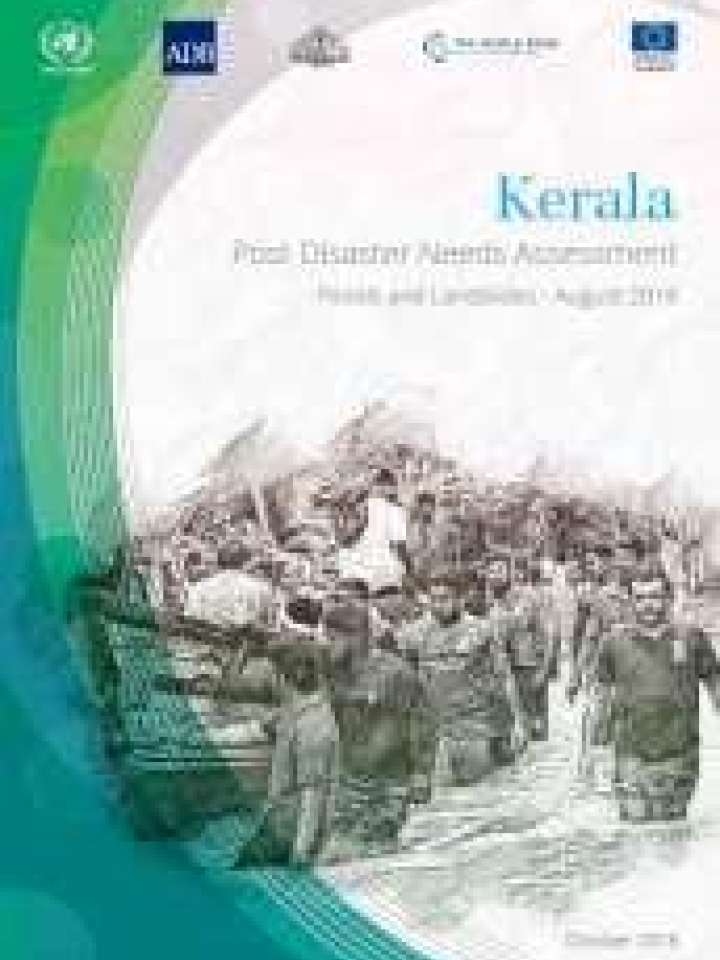Post-disaster needs assessment: Kerala, India
The report formulates recommendations to make Kerala the first green state in India with an eco-sensitive and risk-informed approach. The report also gives several high-ticket innovations and global examples to build back better (BBB) Kerala.
Between June 1 and August 18, 2018, Kerala experienced the worst floods ever since 1924. The torrential rains triggered several landslides and forced the release of excess water from 37 dams across the state, aggravating the flood impact. Nearly 341 landslides were reported from 10 districts. The devastating floods and landslides affected 5.4 million people, displaced 1.4 million people, and took 433 lives. The Government reports that 1,259 out of 1,664 villages spread across the state’s 14 districts were affected. The floods and landslides caused extensive damage to house, roads, railways, bridges, power supplies, communications networks, and other infrastructure; washed away crops and livestock. The Post Disaster Needs Assessment (PDNA) conducted by the UN under the leadership of the Government of Kerala estimates the total Recovery needs to be at USD 4.4 billion.
The PDNA is the global methodology developed by the UN, the World Bank and the European Union to assess damage and loss in the wake of disaster and to recommend the recovery needs and strategies. In all, 76 experts from 10 UN agencies and European Union across 13 sectors collaborated to develop the report in 20 days. The UN agencies included, UNDP, UNICEF, UNESCO, UN Women, UNFPA, UNEP, WHO, WFP, ILO and FAO. Besides, two experts on integrated water resources management from the Netherlands also provided support. The report was prepared after visiting 120 villages in 10 districts and interacting with experts, affected people, elected representatives, officials and representatives of civil society organisations.
Explore further
